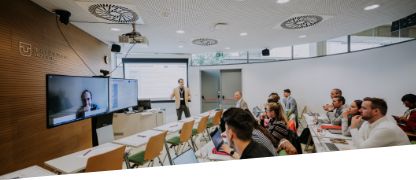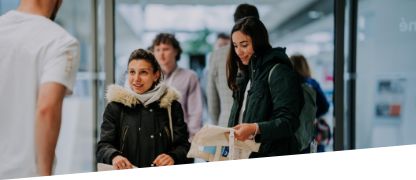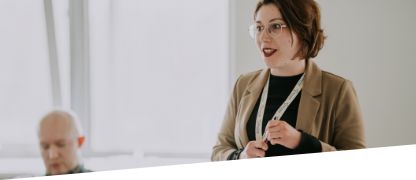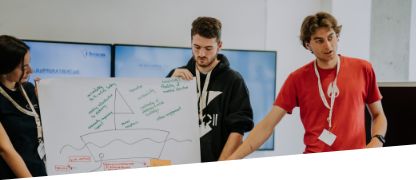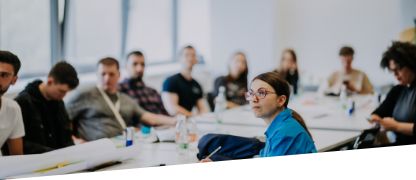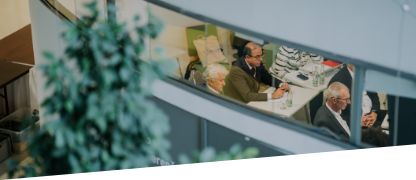RIGO hosts design thinking workshops to address international mobility challenges
As part of the satellite project RIGO, Ulysseus educators and students collaborated in a series of international Design Thinking workshops to identify key challenges and problem scenarios in the international mobility experience.
These insights will be transformed into immersive VR scenarios, providing a co-creational approach to understanding and addressing mobility issues.
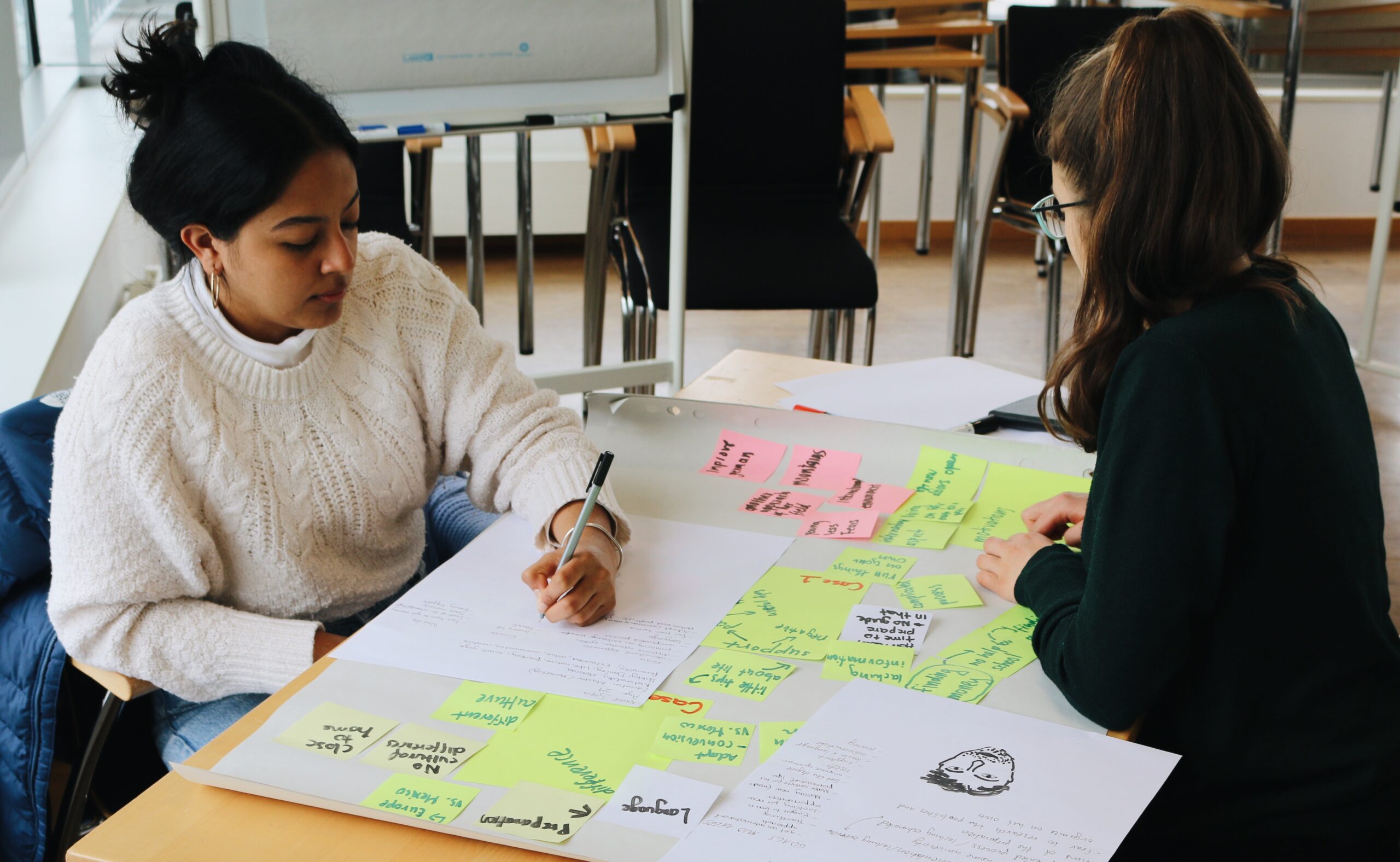
In a series of international Design Thinking workshops, Ulysseus educators and students collaborated to identify key challenges and problem scenarios in the international mobility experience. These insights will be transformed into immersive VR scenarios, providing a co-creational approach to understanding and addressing mobility issues.
Digital Transformation and the RIGO Project
The rapid developments in AI and the post-COVID landscape have brought new challenges and opportunities for digital transformation in higher education. One area we are focusing on within the RIGO project is the strategic use of VR technology for enhancing international mobility programs. Understanding the experiences of exchange students is crucial for creating supportive digital environments that enhance the accessibility and success of these programs. As part of this effort, we conducted a comprehensive co-creation process involving students and trainees with firsthand experience in international exchanges. This initiative, part of Work Package 2 (WP2), took place from February to April 2024 and aimed to gather authentic insights from participants to inform the development of effective support mechanisms.
The Co-Creation Process
The co-creation process was designed to be participatory and inclusive, engaging students and trainees to share their personal exchange experiences. By directly involving those who have lived through, or are currently part of exchange programs, we aimed to gather valuable, real-world perspectives that would enhance the relevance and effectiveness of our support tools.
Planned and led by the Haaga-Helia team, the process consisted of two stages. Initially, in-person workshops were conducted at all four partnering institutions. Subsequently, online workshops facilitated international collaboration across these institutions. Participants were encouraged to openly discuss their experiences, challenges, and the strategies they employed to overcome various obstacles.
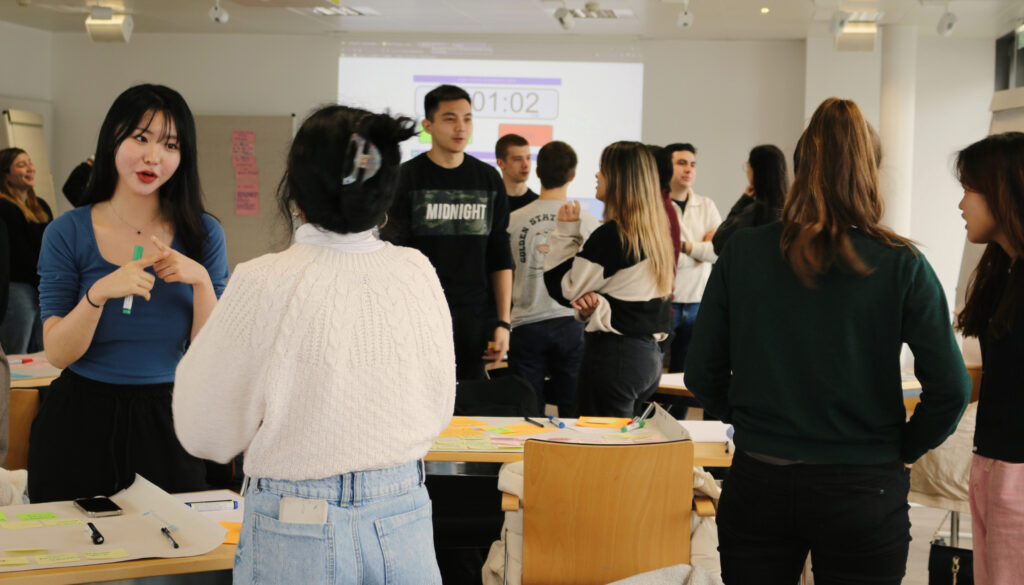
Main Outcomes
Personas Representing the Target Group: We developed a set of personas that encapsulate the diverse backgrounds, needs, and experiences of exchange students. These personas provide a nuanced understanding of our target audience, ensuring that our support tools are tailored to their specific contexts.
Suggestions for Themes, Situations, and Coping Strategies: Participants contributed a wide array of suggestions for themes, situational contexts, and coping strategies. These insights are instrumental in enriching the content for the virtual platform, ensuring that it addresses a broad spectrum of experiences and provides practical, actionable advice.
Scenarios for the Virtual Platform: Building on the themes above, a comprehensive set of scenarios was created, reflecting the common and critical challenges identified by the participants. These scenarios will serve as the foundation for content on our virtual platform, guiding the development of interactive and engaging learning modules.
Conclusions
The co-creation process in WP2 has been a pivotal step in our efforts to support exchange students. By involving those with direct experience, we have ensured that our outcomes are grounded in reality and genuinely address the needs of our target group. The personas, scenarios, and thematic suggestions developed through this process will constitute the basis of our virtual platform, providing exchange students with the tools they need to succeed in their international mobility experiences.
As we move forward, we remain committed to leveraging these insights to create a more supportive and enriching environment for all exchange students. The collaborative spirit of this process highlights the power of co-creation in addressing complex challenges and fostering innovation in international education.
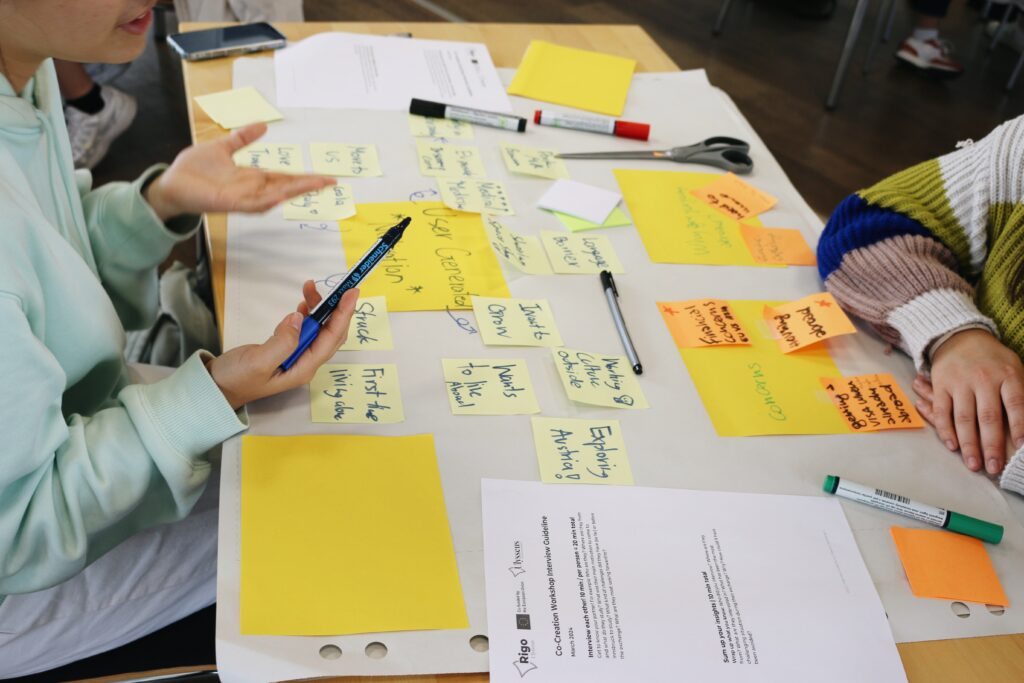
Key Learnings for Educators
The in-person Design Thinking Workshop proved to be highly effective, fostering creative and personal exchanges that generated numerous ideas during the brainstorming phase at all four institutions.
Organizing collaborative digital workshops across all four institutions posed more challenges. Creating a familiar atmosphere and ensuring the successful execution of online collaboration required particular attention to scheduling and logistics.
Overall, the team is very pleased with the high quality of the outcomes. By involving individuals with direct international mobility experience, we have established a solid and relevant foundation for creating VR scenarios in the next phase of the process.
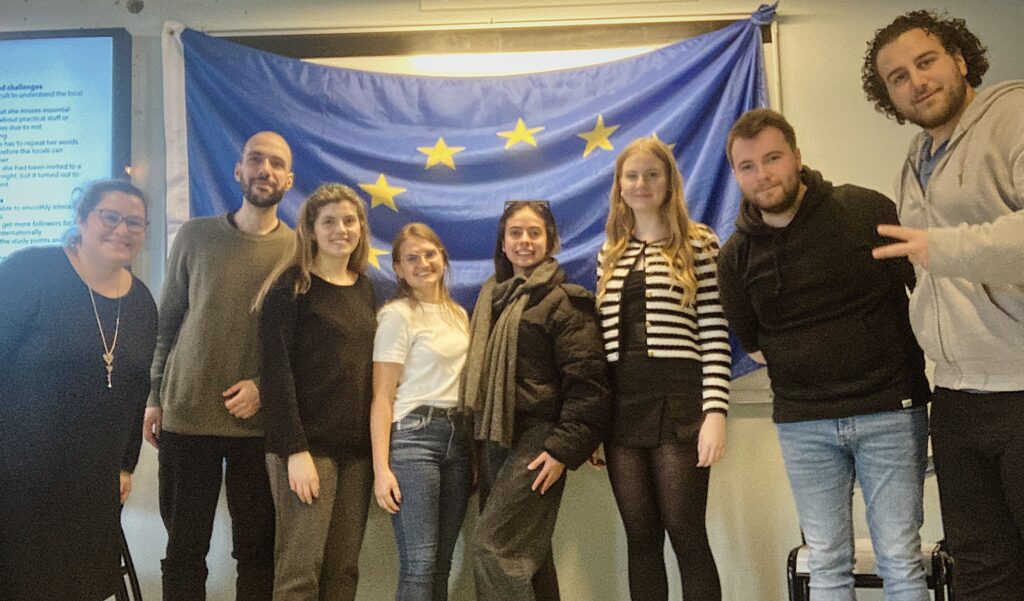
About RIGO
Launching in September 2023, the 36-month project promises an exciting digital transformation for partner universities, leveraging innovative learning practices with VR technology. Beyond enhancing digital skills, the project tackles inclusion and diversity in education, facilitating the preparation of students who, due to socio-economic or physical constraints, have been deprived of international experiences. The RIGO project welcomes a digital future of inclusive international mobility. Follow our transformative journey!
RIGO – READY, IMMERSE, GO! Immersive VR Experience for International Mobility is a project to foster the Ulysseus Mobility Experience priority and serves as a satellite project for Ulysseus.
RIGO has received funding from European Union’s Erasmus+ programme under the grant agreement No E10224899. The views and opinions expressed in this communication are the sole responsibility of the authors and do not necessarily reflect the views of the European Commission.

